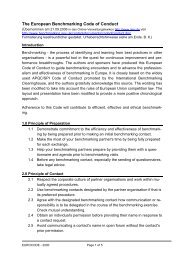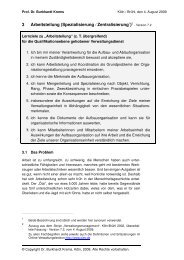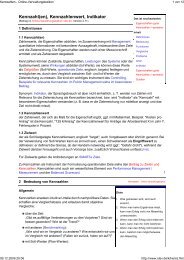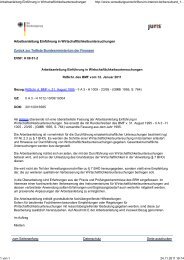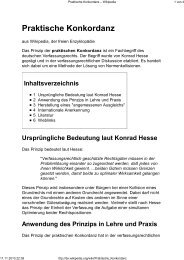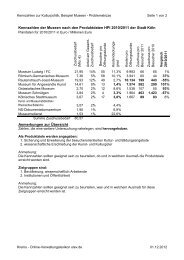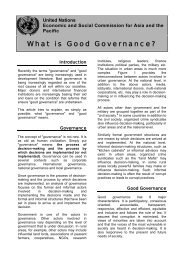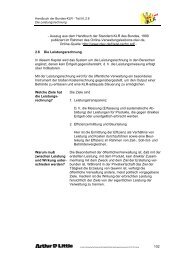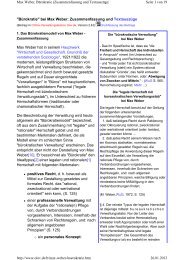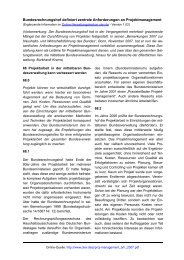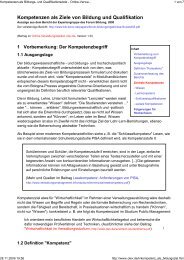Strategy Survival Guide
Strategy Survival Guide
Strategy Survival Guide
Create successful ePaper yourself
Turn your PDF publications into a flip-book with our unique Google optimized e-Paper software.
<strong>Strategy</strong> <strong>Survival</strong> <strong>Guide</strong> Version 2.1<br />
Prime Minister’s <strong>Strategy</strong> Unit<br />
home | strategy development | strategy skills | site index<br />
<strong>Strategy</strong> Development > Research & Analysis > Management Issues<br />
At this stage in the project, project management is often neglected. Team members are concentrating on the<br />
detailed data gathering and analysis and it can be easy to let project management slip. The project plan and<br />
stakeholder engagement plan should be continually referred to and updated. During this phase the<br />
communications plan should also be evaluated to identify any weaknesses.<br />
Project Management<br />
The vision and key hypothesis driving the work should be reviewed in the light of the emerging evidence<br />
from the data gathering and analysis. Where the desired granularity of data is not available within the time<br />
scales of the project, a pragmatic approach will be needed to make judgements based on the data that is<br />
available. Milestones should also be reviewed to check the project’s progress and ensure it is still on track.<br />
People Management<br />
It is important that workstreams are reviewed and confirmed. Team roles and responsibilities can then be<br />
reviewed and agreed. Regular feedback should be sought from the team on how they feel the team is<br />
working.<br />
A meeting of the project Steering Group to advise on emerging analysis may be helpful towards the end of<br />
the phase. This could involve a presentation of the interim analytical report. Preparing presentations using<br />
techniques such as storyboarding will help to check the logic before presenting it and ensure that all the<br />
supporting information is available before writing the slides.<br />
Stakeholder Management<br />
Stakeholders should continue to be actively engaged and consulted through activities such as the publication<br />
of consultation papers (online and/or in paper format), holding seminars and using focus groups.<br />
It is important to be very clear with stakeholders and sponsors about the project process and their role in<br />
order to maximise the value of their contribution and secure their continued buy-in.<br />
Communications Management<br />
A public consultation exercise is a helpful way of structuring consultation with stakeholders. The Internet is a<br />
useful tool, and should be used in conjunction with a small number of meetings or seminars. Planning for any<br />
public consultation should commence early in the project, as it will take time to develop an effective process,<br />
prepare consultation documents and plan communications.<br />
Knowledge Management<br />
The information gathered in this phase should be organised in a logical way. At this stage of the project, the<br />
role of a knowledge management ‘champion’ is crucial. For example, notes should be made of each meeting<br />
and interview and kept centrally to allow all team members to access them. Electronic data, including a<br />
database of all contacts, should also be organised on a project shared drive in a logical way. Hard copies of<br />
documents, books, and publications should be catalogued and a system for accessing documents from the<br />
project "library" should be established.<br />
Useful links:<br />
> managing people and the project<br />
> managing stakeholders & communications<br />
<strong>Strategy</strong> <strong>Survival</strong> <strong>Guide</strong> – <strong>Strategy</strong> Development<br />
Page 27



